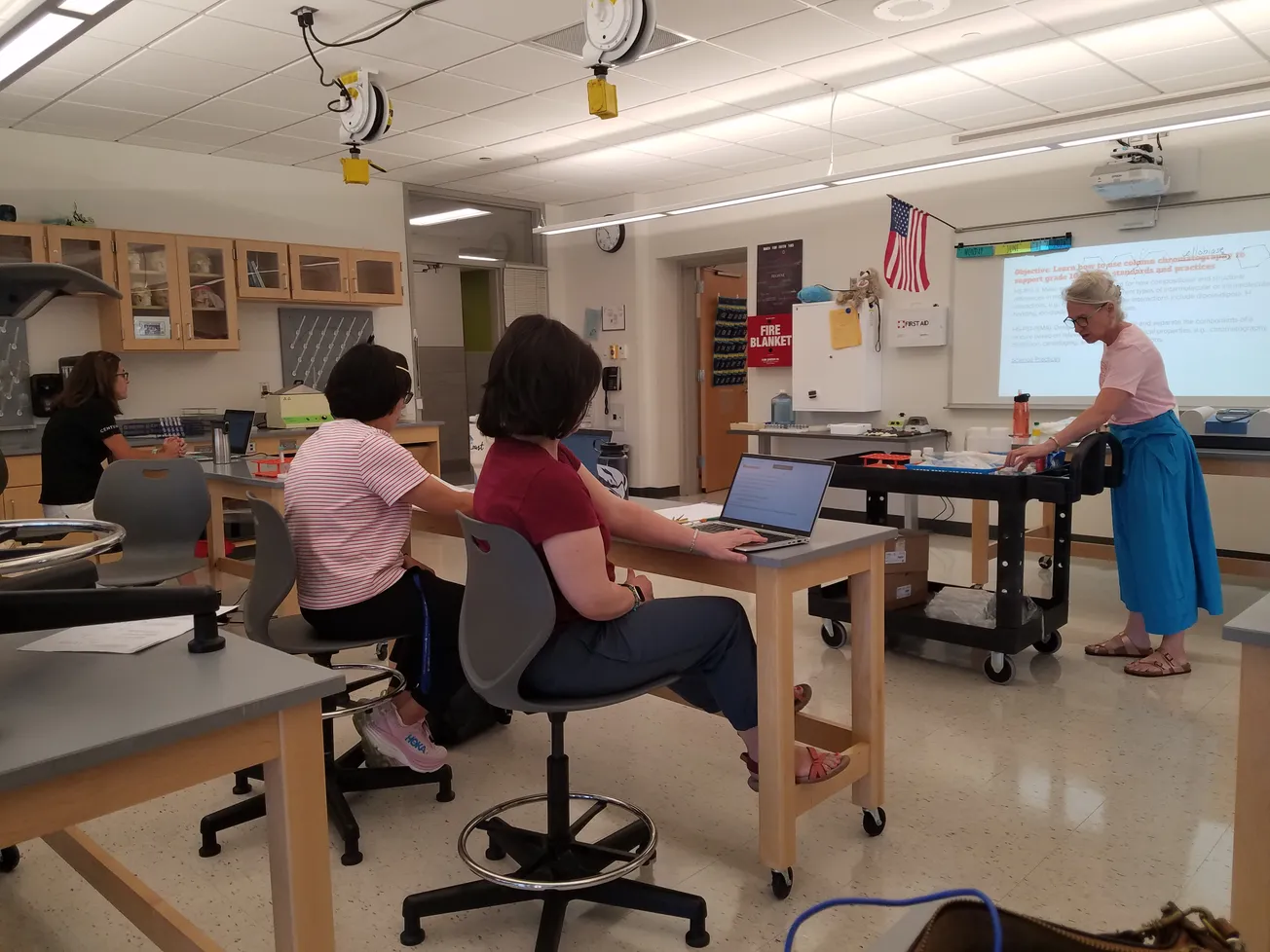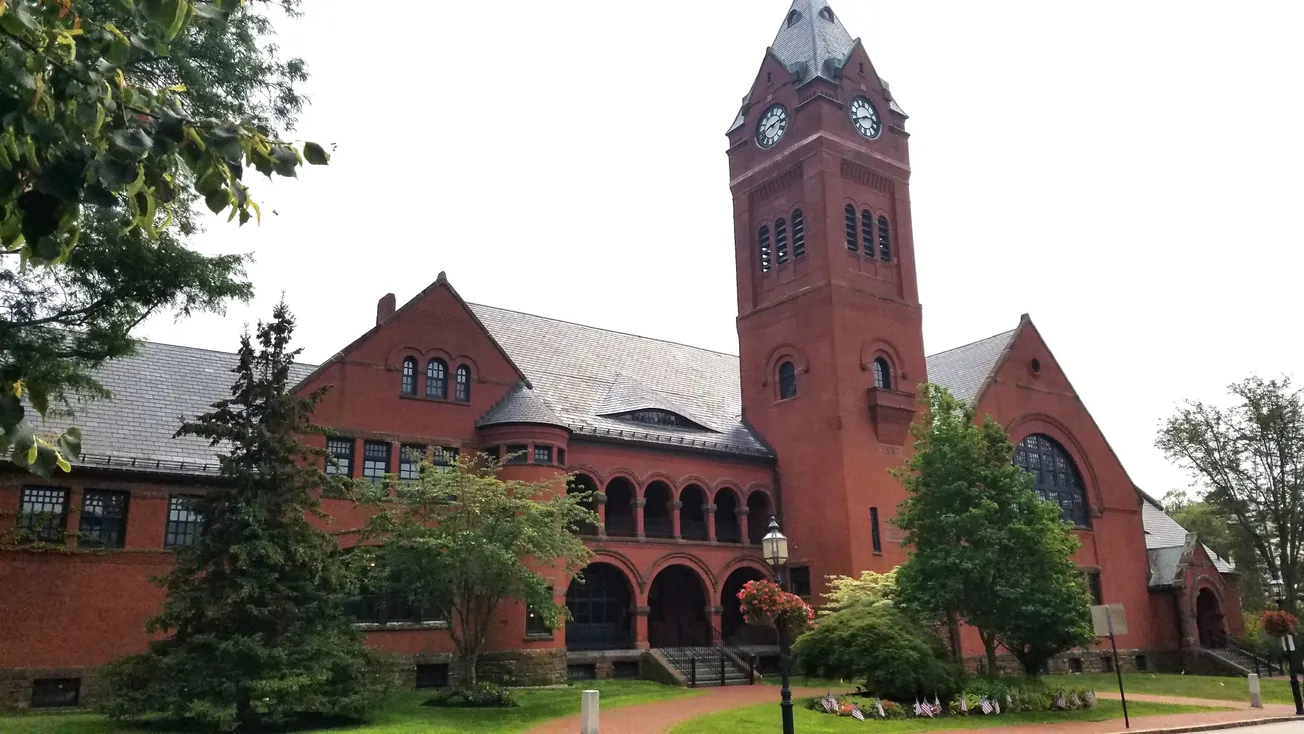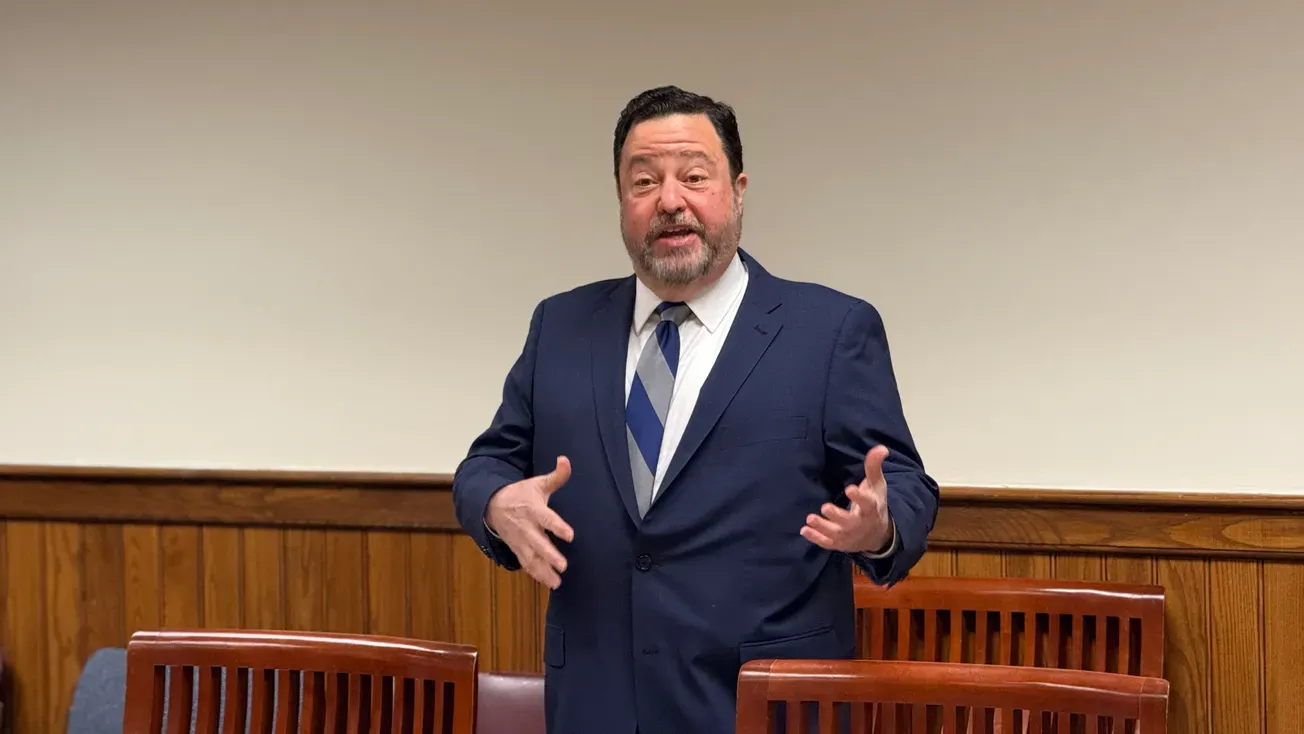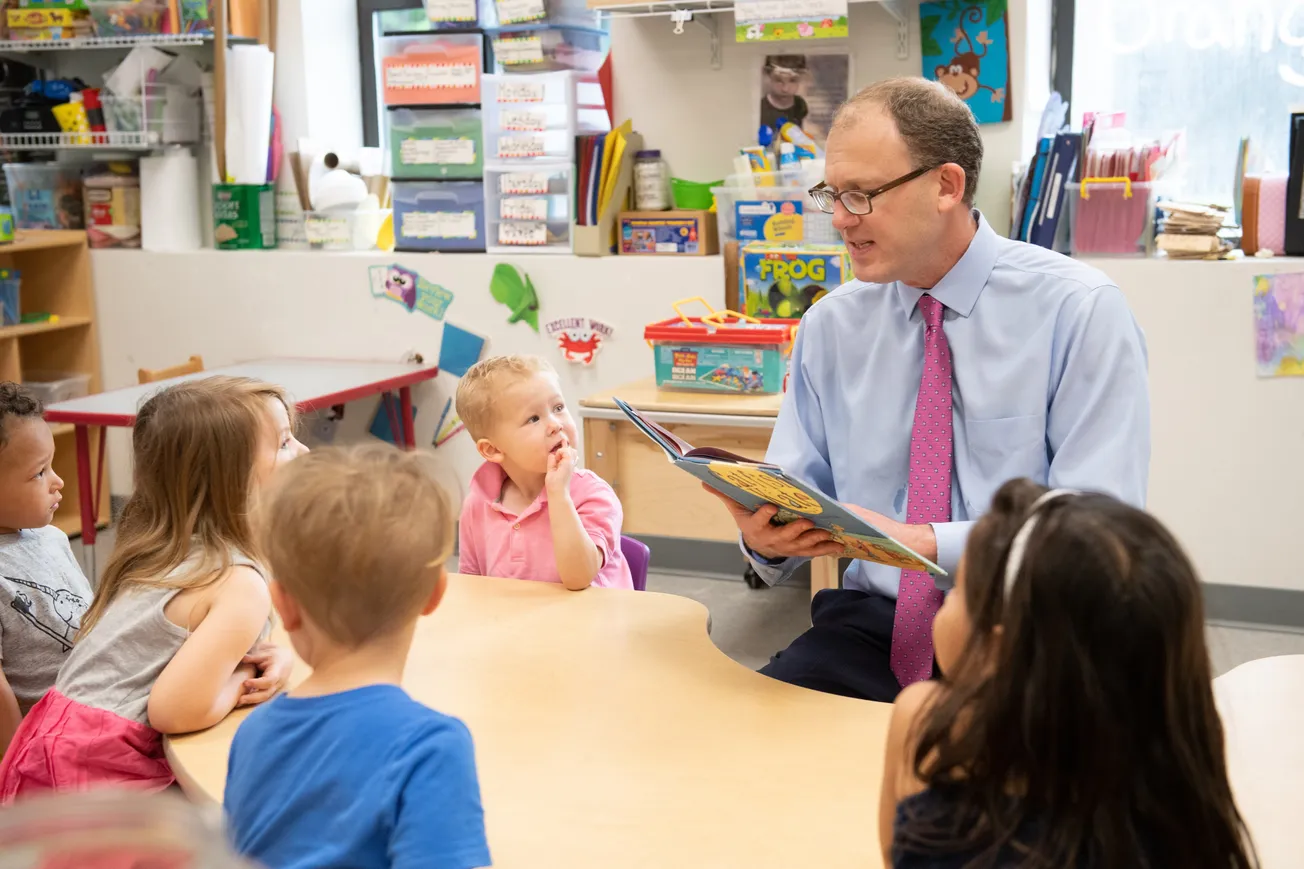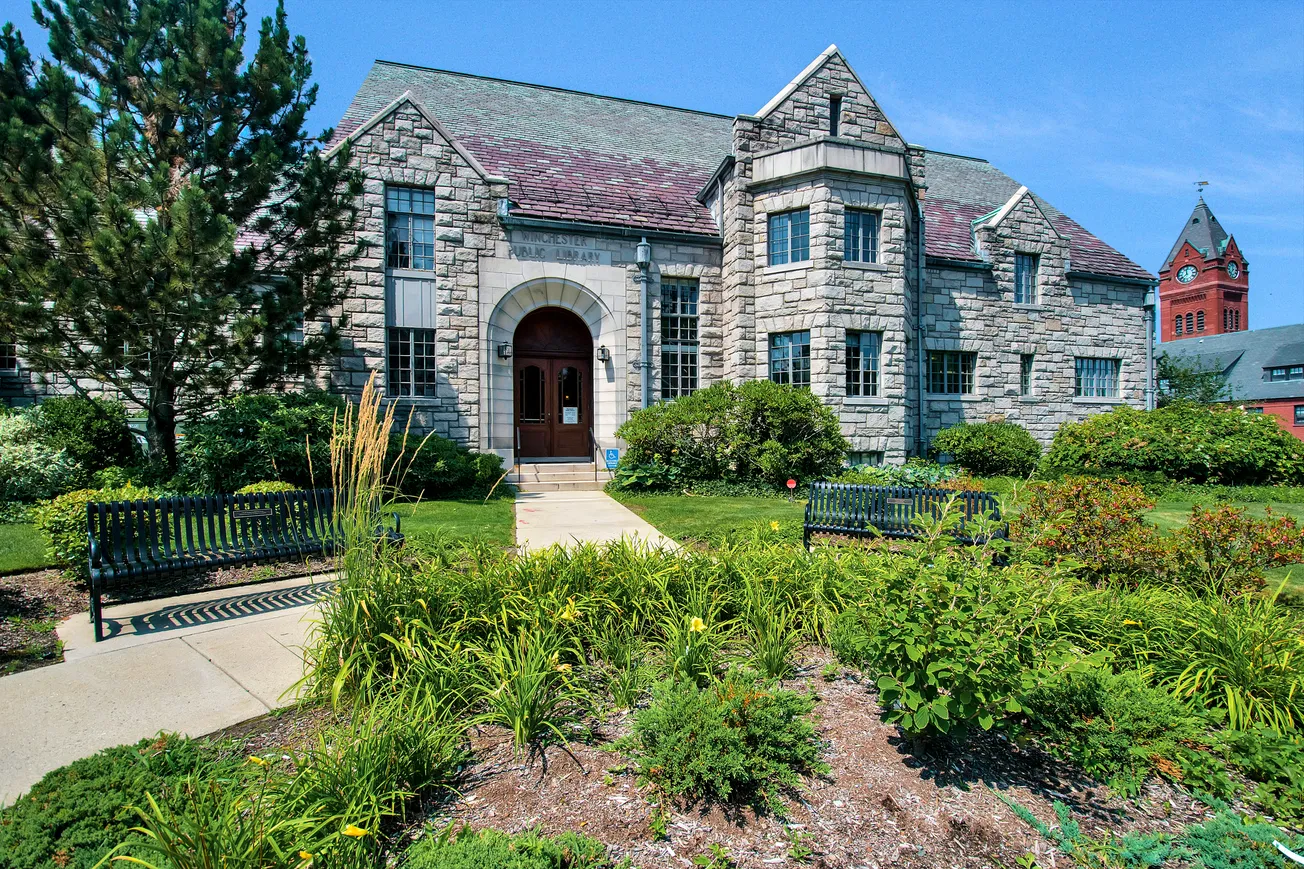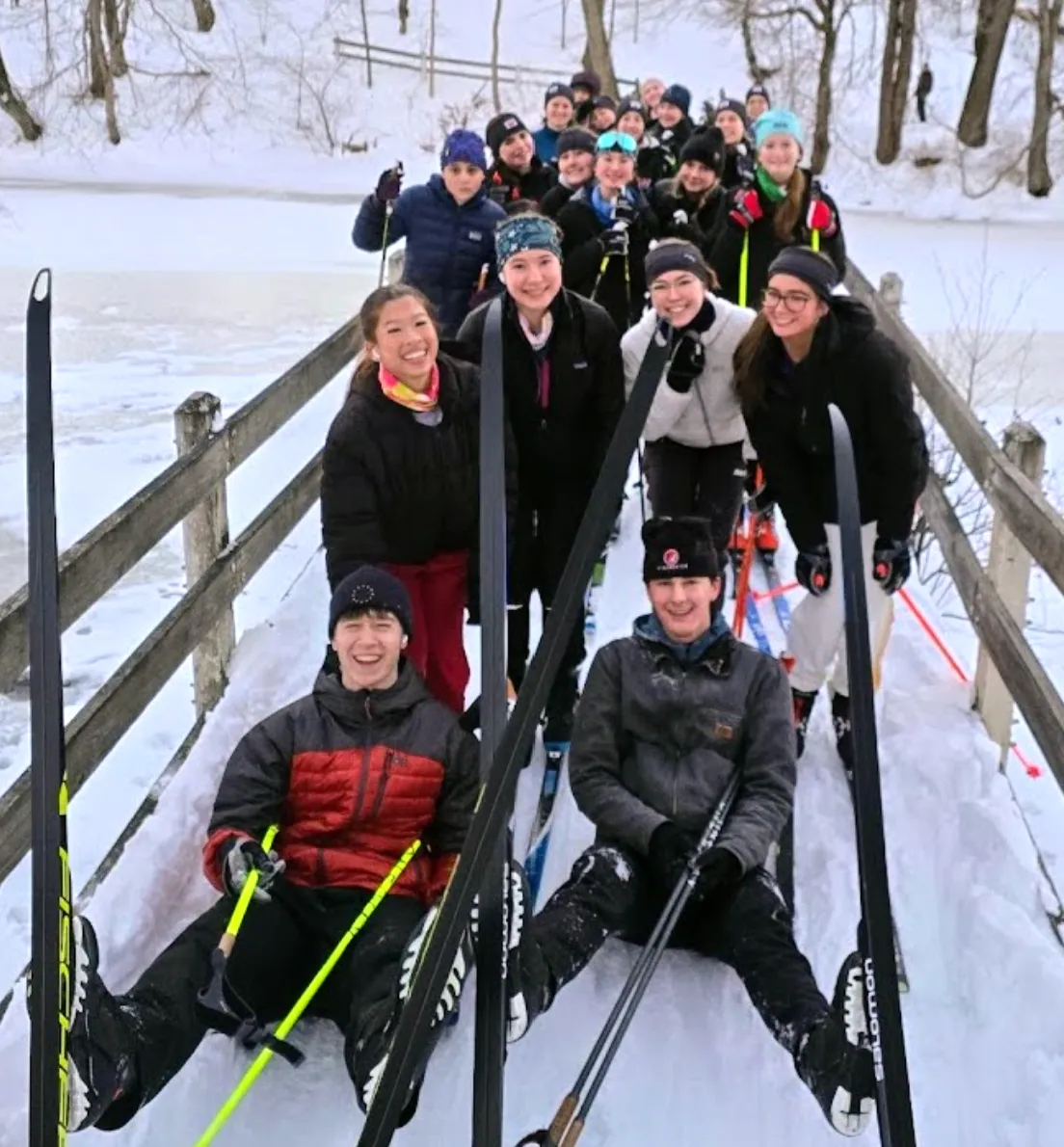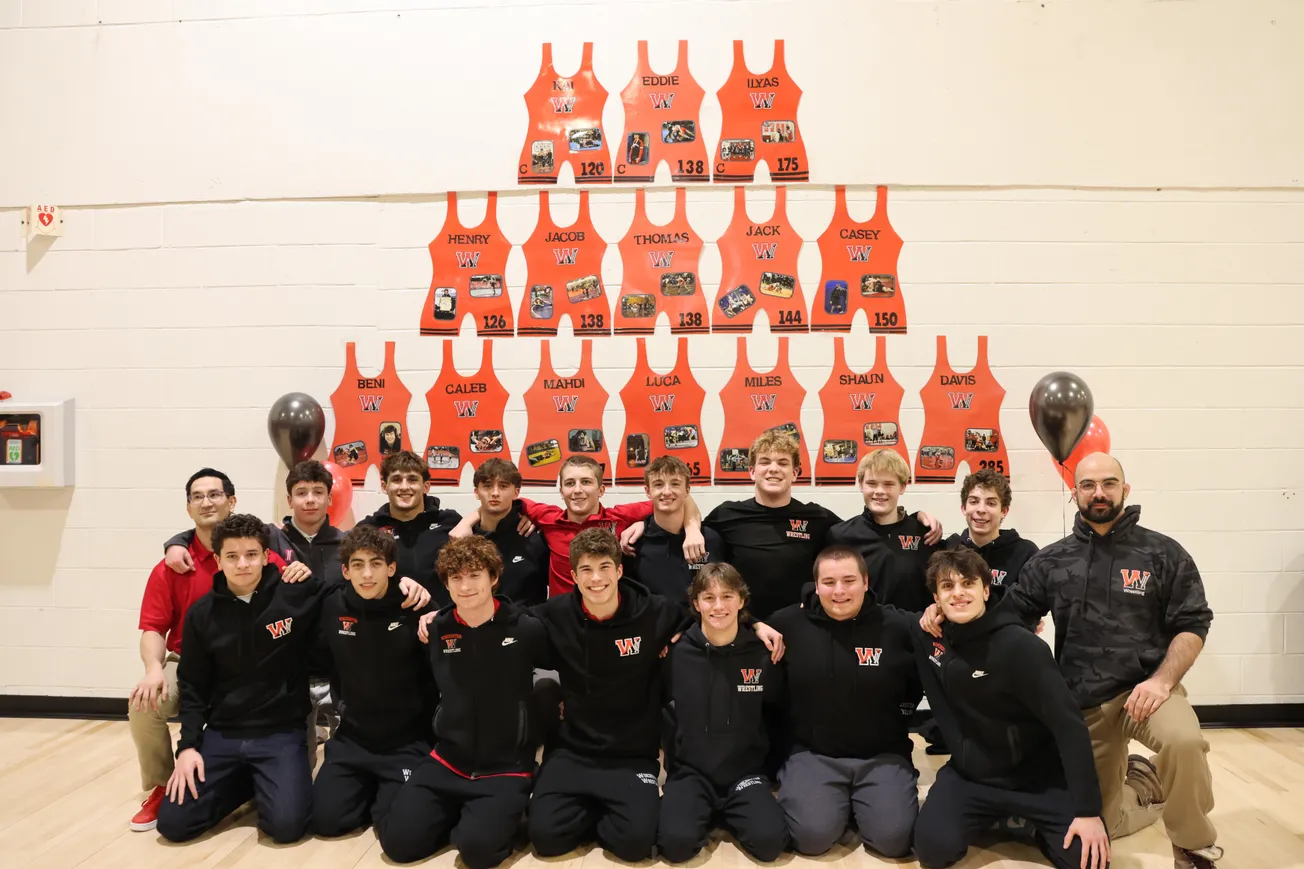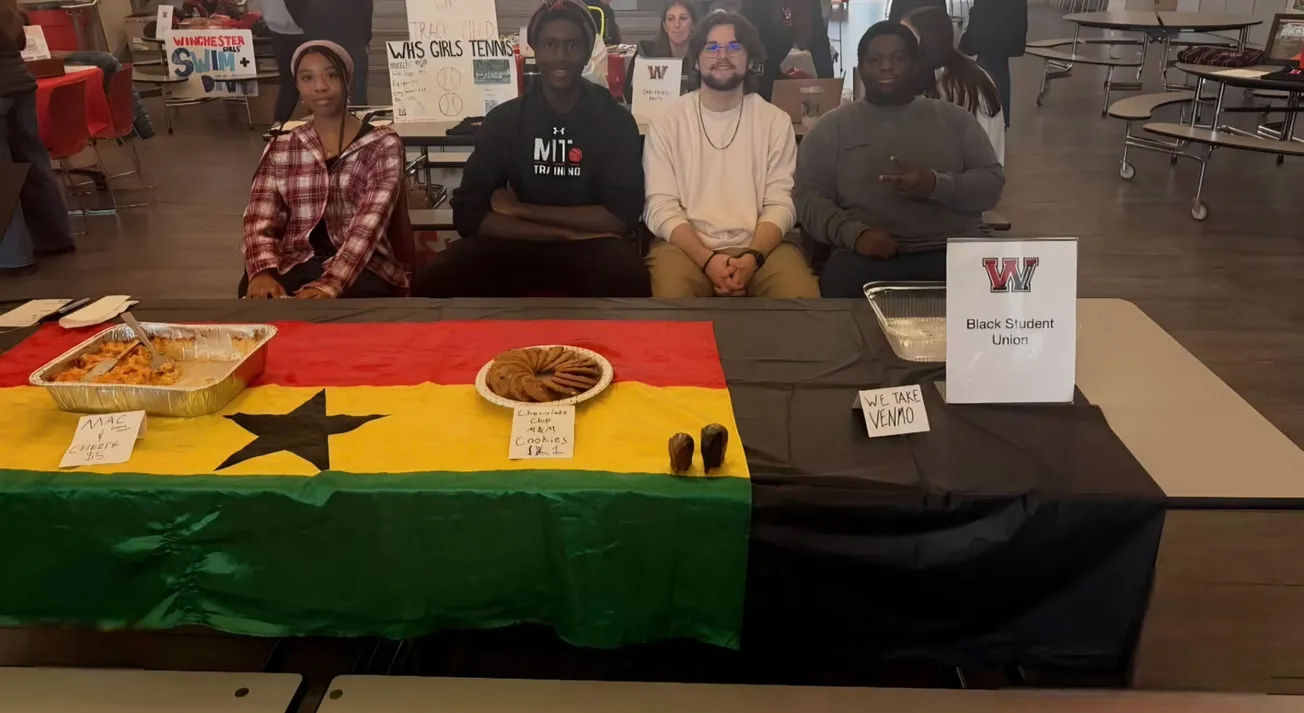Table of Contents
The group of students picked their candy: Skittles, Nerds, maybe Mentos? They mixed in solutions, filtered them and suddenly different colors streamed into carefully set up beakers. A burst of excitement went up as the science experiment went exactly as predicted.
But these students weren’t your average everyday high schoolers. They were a group of teachers running through the new biotech pathways curriculum.
“I’m bursting with excitement about this,” said Ann Ritchie, director of science for grades K-12, of the new initiative being introduced at Winchester High School this year. “It’s a rich opportunity for students and it’s a chance to exercise science practices.”
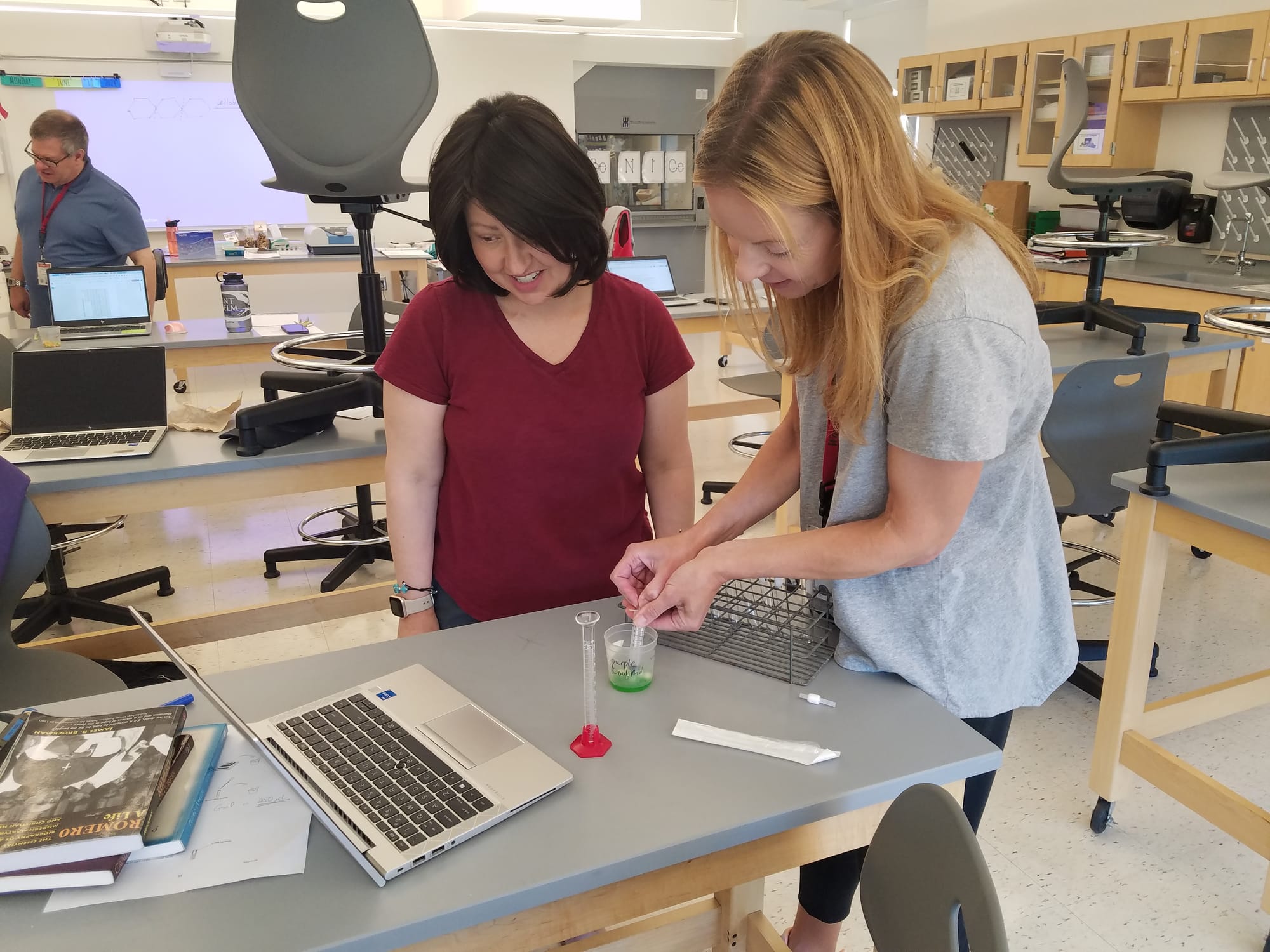
Ritchie said more than a year ago, the WHS science faculty sat down and brainstormed how they could get more equipment and technology into the hands of all its students. Because a teacher who taught biotechnology was retiring, it was a golden opportunity to introduce biotech into the entire high school curriculum, from grades 9 to 12, instead of just offering the class as an elective.
In a presentation, Ritchie said about 675 students will be exposed to biotech via the new pathways, whether they are in college prep or AP classes.
She added it’s also a great way for students to become interested in biotech or other science careers when they graduate high school and go to college.
“We’re enhancing the curriculum,” Ritchie said. “We’re embedding biotech in the science experience for all grades, 9-12.”
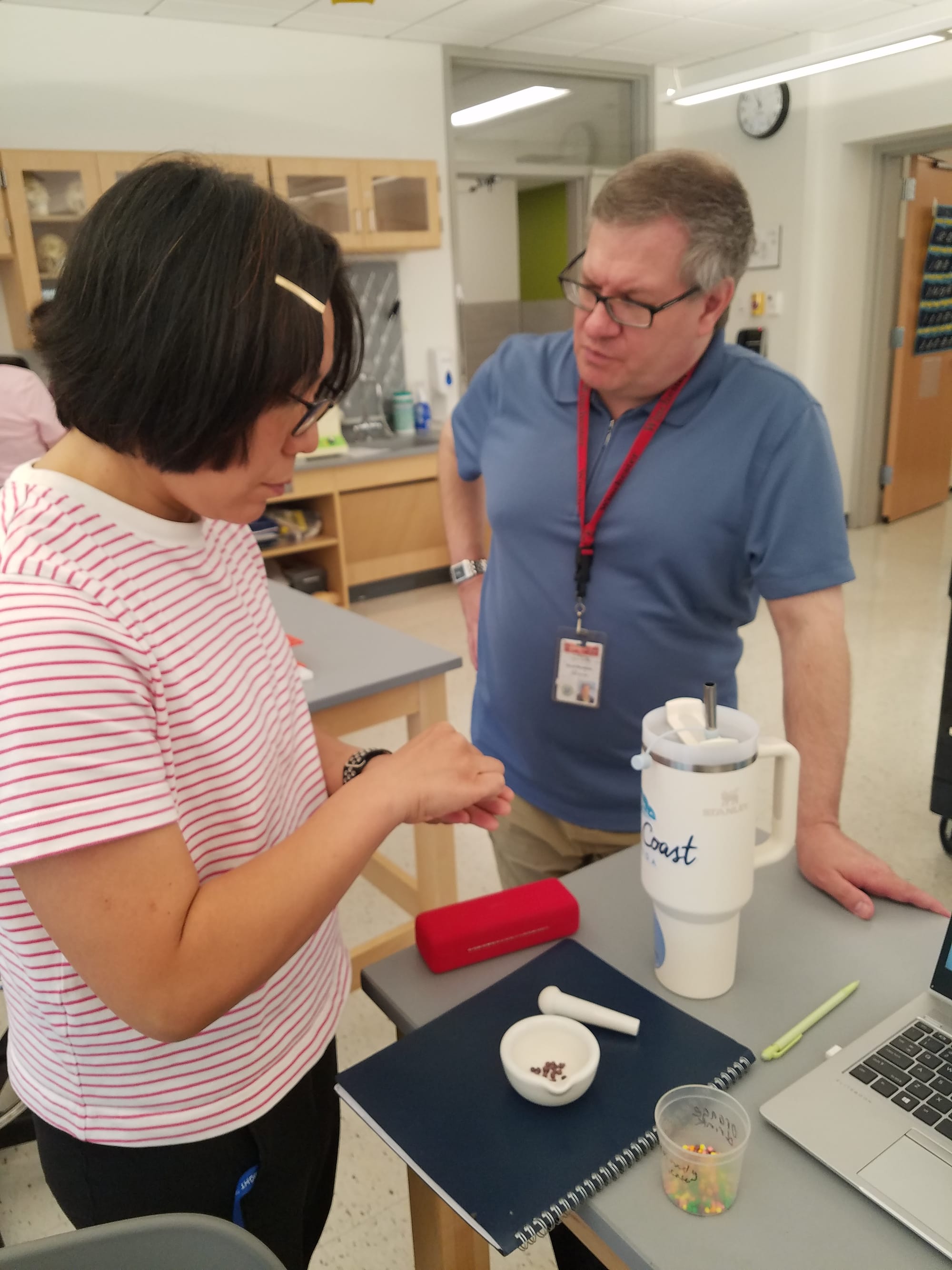
The grant
With a plan to introduce a progressive biotech skillset via class and lab experiences at WHS, Ritchie wrote a grant and submitted it to the Winchester Foundation for Educational Excellence.
WFEE provided a two-year grant, with $70,000 in the first year going to equipment and supplies, and $8,000 in the second year for more supplies.
After that, Ritchie said the Science Department budget should be able to accommodate the need for supplies.
“This year, we have to do double duty,” she said. “We will have to backfill [curriculum and skillsets] until the students catch up.”
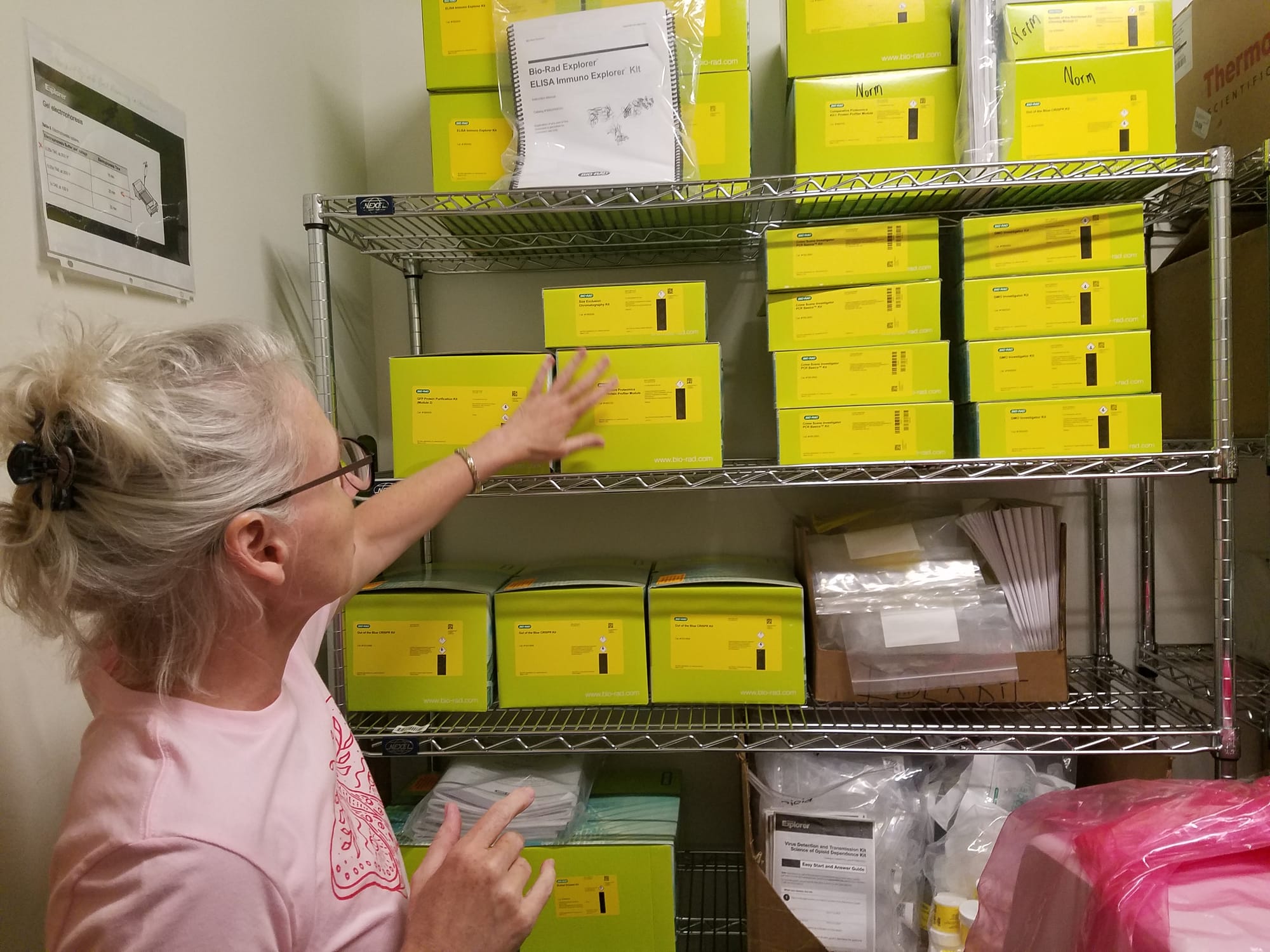
Otherwise, WHS is ready for its new biotech initiative.
Ritchie said she’s thankful for all the positive feedback, whether from administrators or teachers.
“The administration has been so supportive in allowing me to make the best choices with the time I had,” she said.
Teacher reactions
Chemistry and biology teachers on Sept. 3 watched Ritchie run through lab experiments before getting their own hands-on experience with them.
“For ourselves, it’s helpful to do the training,” said biology teacher Alexandra Geyer, adding some of these experiments weren’t available even when they were in college.
Fellow bio teacher Jodi Timmins said doing the experiments yourself can help troubleshoot issues that might arise in class.
“It’s helpful when you’re teaching someone else having gone through the experience ourselves,” Geyer agreed.
The experiments for the bio-tech pathways program might be something new, but both teachers said they will fit right in with the state curriculum guidelines. The goal is to integrate both, giving Winchester students a leg up when it comes to college.
“It’s all new,” said chemistry teacher Gina Zhou, of the new additions. “Today is our first day learning it, literally.”
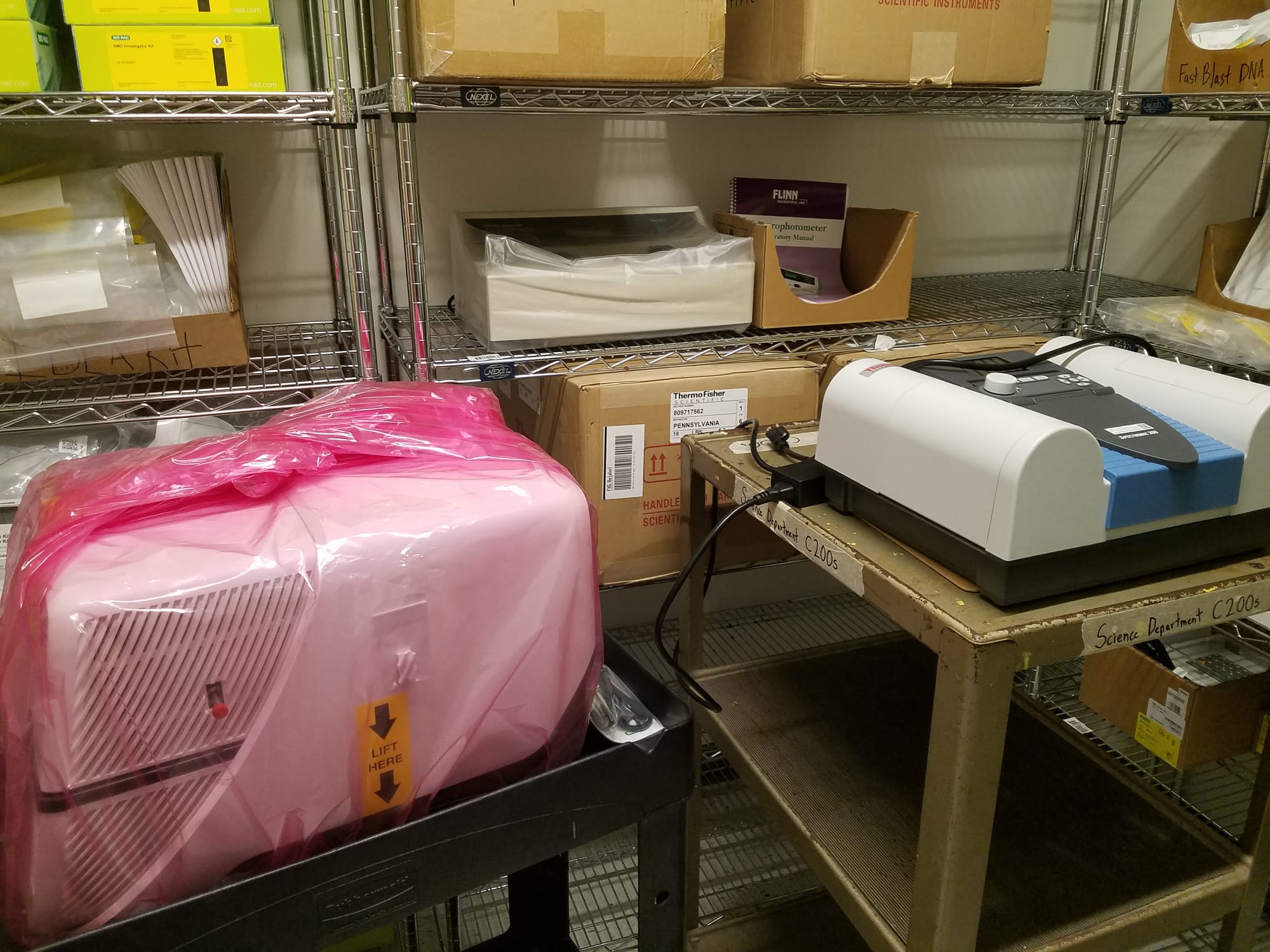
She added the experiments are a way to teach students the necessary skills they will need by building on past knowledge. That way, the experiments are more meaningful when students understand the concepts.
“I’d say the experiments are fun,” Zhou said. “They provide instant results so that’s very satisfying [for the students.]”
Chemistry teacher David Benedetto added doing the experiments yourself also helps teachers figure out the message they want to get across to students.
“What’s the takeaway?” he asked. “Once you know what the takeaway is, then you can figure out what unit to put it into.”
Zhou said there are some nerves when it comes to adding the bio-tech programming to the curriculum, simply because it could take up to two or even three class periods to get through what that takeaway should be.
“You have to design the right experiment,” she said. “You want it to be meaningful. Once you do that you will be able to provide a quality experiment.”
Chemistry teacher Diane Duke enthusiastically watched the liquid in her test tubes go from clear to blue and yellow. She hopes her students will have the same reactions.
“I’m excited to bring new labs to the curriculum and to let the kids use more of the lab equipment,” she said. “After doing the labs ourselves, I feel they are more than doable.”
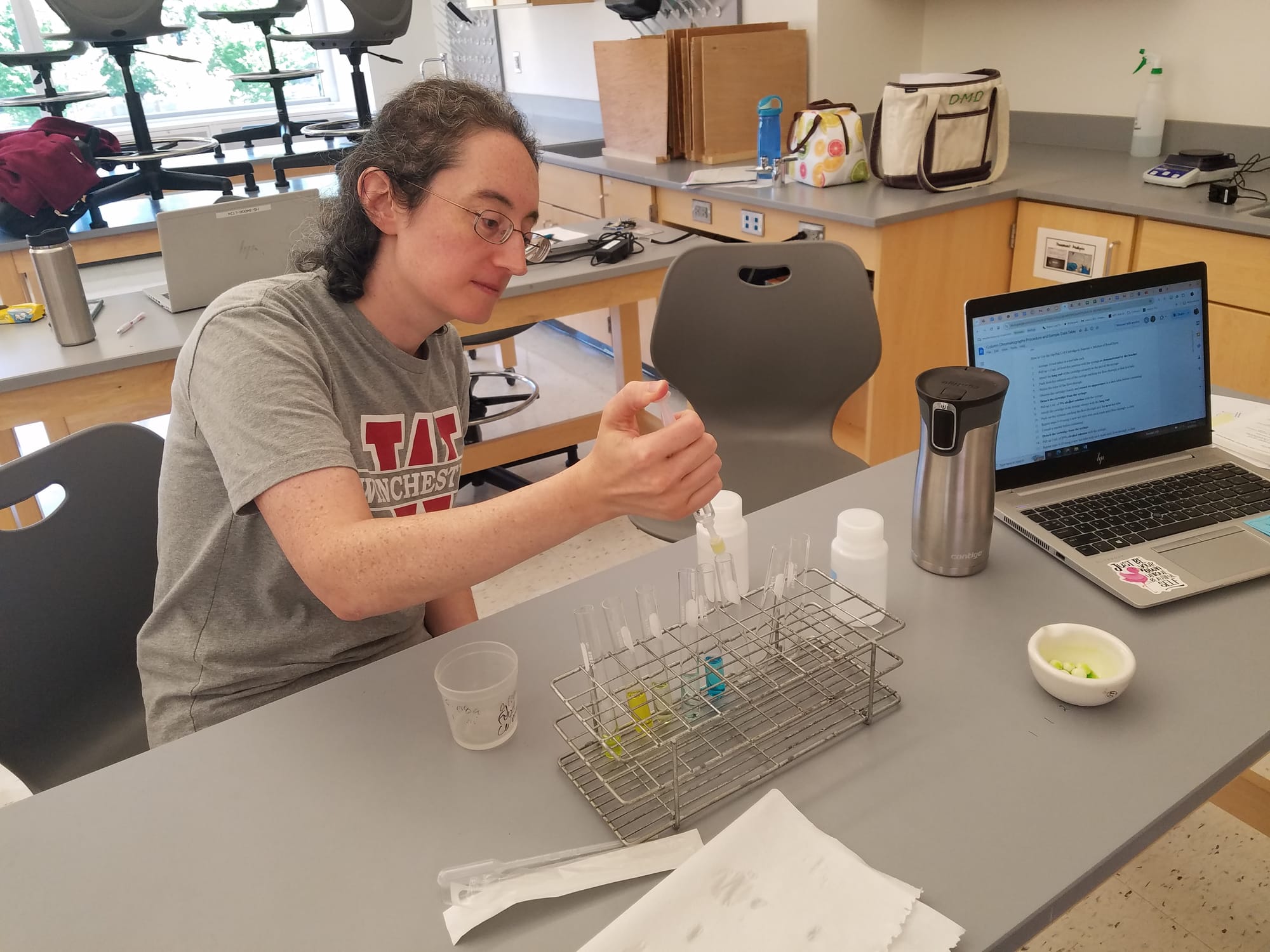
Duke said she was hesitant after writing some of the instructions for the new program, but getting hands-on herself has made her less worried.
“I’m excited,” she said, of the program. “It’s nice to do something different every year, too.”
And enjoy learning something new in the process?
“Yes, this is fun,” Timmins said, with a laugh. “We’re science teachers so this is a good time for us. Doing all these hands-on experiments is fun.”

